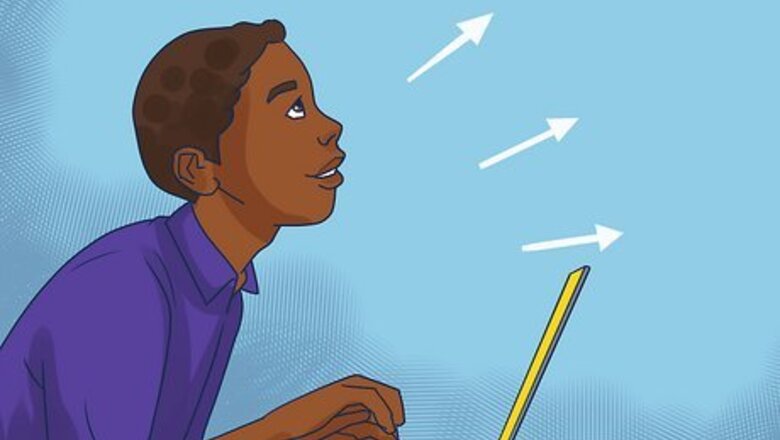
views
This article focuses on the specifics of writing and directing a parody or spoof. For more general filmmaking steps, including pre-production and editing, click here.
Nailing the Writing

Choose a genre to spoof, not one specific movie. With the possible exception of Mel Brook's Space Balls, which took aim almost exclusively at Star Wars, (a mega-hit that almost everyone has seen), almost all great spoofs cast their net widely. It is no mistake that Brook's other films hit bigger targets like monster movies (Young Frankenstein), westerns (Blazing Saddles) and historical epics (History of the World Pt. 1). The master of spoof and parody understood that the more people feel included, and the more people understand broader references, the funnier the film will be. Movies and genres that tend to take themselves very seriously tend to be the best targets of satire. Generally, the more a movie or genre tries to avoid humor, the riper it is for making fun of. Genre movies are those with similar plots -- any type of movie you've seen 10 versions of, like slasher films, romantic comedies, sports films, etc.

Watch every movie and scene from the genre you want to spoof, taking notes. A great spoof pays attention to the "original" and uses it as the jumping off point for the screenplay, and you need to do your research. Watch both the movies and any other related spoofs, noting what they find humor in and where things are ripe for joking. Some things to pay attention to are: Recurring character types: Is the cast usually a variation on the same 3 characters? If so, you'll need to include parody versions of them, too. Common cliches and story arcs: Are their plot moments, lines, or shots that every single movie has in common? How can you subvert them to make them funny? Themes or issues of the genre: What does the movie seem to address? Is it over-the-top action and adrenaline in cop movies (spoofed in The Other Guys), or self-righteous documentaries (spoofed in the series Documentary Now!").

Aim for the plot holes and start poking fun. There are few movies without plot holes, and most things you're spoofing will be full of them. Instead of shying away, expose these plot holes to comical extremes, pointing out places the "original" film got a little too ahead of itself. Again, remember that broader plots (like how horror movie characters always want to "split up") are easier to spoof than one plot point in one specific movie. Most spoofs basically steal the common plot structure from the movie they parody, using this as the framework to make jokes from. Having the characters acknowledge the issue or problem, or have one character in particular who jokes about the plot hole (like the stoner in House in the Woods). "Forcing" the plot on the characters, for example, the character accidentally becomes the classic hero or saves the day, despite trying not to be involved (or not trying at all). Resolve the plot holes in a ridiculous way (Blazing Saddles does this with great skill), or simply cut to the aftermath of the big moment without explaining how everyone made it through, like Anchorman's quick turnaround on Will Ferrell cleaning up and putting on a fresh suit in under two seconds.

Invert the expectations and tropes of your film comically. One of the best examples of this (spoiler alert!) is in the medieval spoof Monty Python and the Holy Grail, where the film ends with King Arthur and his knights getting arrested by modern-day cops in the midst of an enormous battle -- it turns out the whole movie is just adults playing violent dress-up. Surprise is at the root of all comedy, and spoofs are the perfect place for a surprise -- your audience knows what plot point or reveal is expected based on the original movie or genre. Shake it up! Inverted characters are always a great spoof tactic-- from bumbling "expert" cops in The Naked Gun to the intelligent, kickass sidekick in The Green Hornet remake.
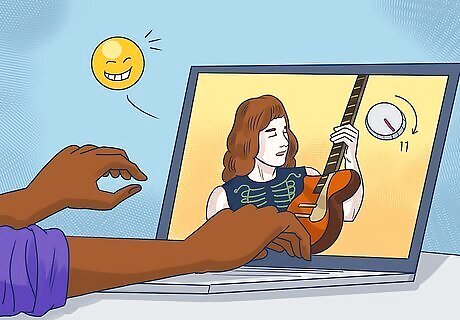
Push the "normal" of the movie you're parodying to its comical extreme. This is Spinal Tap, a parody of rock documentaries, takes this joke almost literally in the infamous "11" speech, where a guitarist brags that his amp's volume knobs go all the way up to 11, not just 10 like a normal amp. Spoofs gain humor by exposing how ridiculous the ideas and plots of movies really are, and how far off they are from the real world.
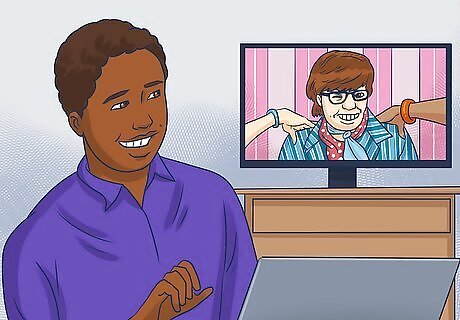
Understand what makes the original so successful, underscoring or arguing its message. The greatest parodies, almost without fail, still manage to respect and honor the movies they are spoofing. The do this by remembering what made the movies so special and worth of parody. After all, no one spoofs a movie that no one watched in the first place. This can mean expanding on the themes or the film, like in Sean of the Dead, or simply picking out the most popular elements and playing them up highly, like in Austin Power. Sean of the Dead begins the film with a zombie-like walk to and from work, then repeats the same shot after a zombie infestation occurs. The main character doesn't notice anything different the second time, a comical moment that reinforces the idea that we're all zombies sometimes -- an important theme that plays out up until the very ending. Austin Powers follows a typical spy plot, but its longevity comes from its recognition of what makes the spy movies so fun -- traveling the globe, crazy fashion and gadgets, and lots of beautiful women.

Consider making an actor or actress the "straight man" to illustrate what is a joke and what is being taken at face value. In comedy, the straight man is the person who most represents the viewer. They are the only ones who seem to realize how insane or crazy things are around them, which makes the craziness and spoofing around them all the funnier. Think of Simon Pegg's tightly-wound cop in the police parody "Hot Fuzz," or Michael Bluth in Arrested Development. While a bit of an advanced skill, peppering in the "voice of reason" will make all of the ridiculous stuff sound normal by comparison. The straight man can be a parody as well, and it is usually best when they are -- the main character of Airplane! is a war pilot coming back to face "calm" normal life as a civilian pilot. But, if you've seen any disaster movie ever, you know it won't be so easy.

Don't rely purely on references to create laughs, instead using them as a jumping off point. A funny spoof needs to be a funny movie all on its own, and constant references to other films will get old fast. Let yourself cut loose and just be funny, even if the joke doesn't have a "cousin" in the real movies. Open, original jokes will make the film feel less like a rip-off, or one of those widely-panned spoofs where every joke is simply a reference to things that happen in other movies. Use your references to add a layer of humor, not to supply all the jokes. Check Austin Powers, for example. Dr. Evil is a great parody of common spy villains, but things like his relationship with his less-evil son transcend parody to become great family comedy in any movie. This makes the son's turn towards evil even funnier later on, as the parody aspects come full circle. One of the funniest scenes in Will Ferrel's telenovela parody Casa de Mi Padre is a take on the cowboy singalong, but as the musical continues it veers into wildly different, and hilarious, new territory based on the image of them all singing.
Filming A Great Spoof
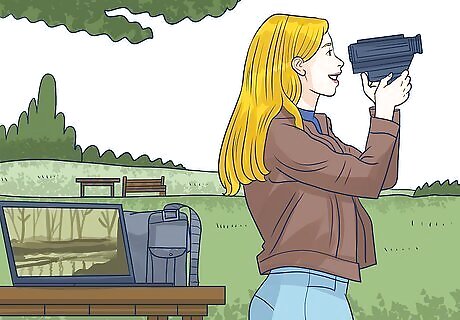
Breakdown the visual style of the movies you're spoofing, and shoot it similarly if possible. For example, any spoof of the Blair Witch Project should be using hand-held camera work to replicate the shaky look of the original. Shooting a Game of Thrones parody? You better have lots of low camera angles on the power-players and dramatic, sweeping shots of your location (which can humorously reveal things as you turn the camera). Not all movies have an easily discernible visual style, but they all have common pieces. While romantic comedies are shot in a straightforward manner, you definitely need a "happy music" montage of the couple falling in love. The other idea is to go as far from the actual movie as possible, shooting instead in a comically different location, like the aforementioned ending of The Holy Grail.
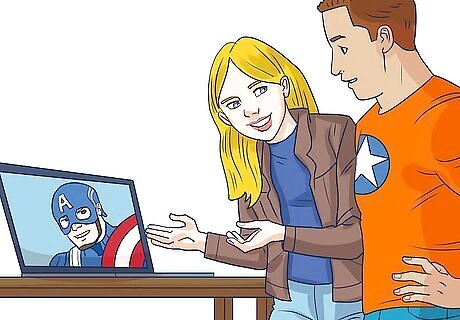
Give your actors characters to reference for their performance. The best spoofs play off of the original movies from script to stage, and your actors are a key factor. Show them the characters they are spoofing in their "natural habitat" so they everyone is on the same page. Find the major motivation or parody of the character ("the pompous hero," "the bumbling sidekick" Use these characters as baselines, especially for big moments. Instead of starting from scratch on a rakish, sleazy pirate ship captain, you can say "act like Han Solo, but way creepier and more flirty."
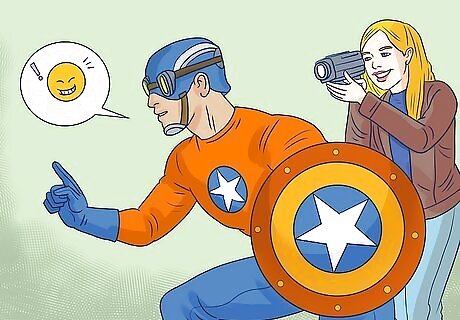
Play the ridiculous moments "straight" for the funniest results. Looking at the camera, laughing, or acknowledging that this isn't how things normally are is called "breaking the 4th wall." You're basically reminding everyone that they're watching a movie, which can work in small doses (see the film noir spoof Kiss Kiss, Bang Bang for a wonderful example), but most jokes should be told "straight." That means your actors accept the lines and events as if they were real life. To your characters, the world they live in is the only world they know, no matter how wacky. Check Leslie Nielsen, star of famous spoofs from "Airplane!" to "The Naked Gun" for a masterclass in straight-faced comedy.
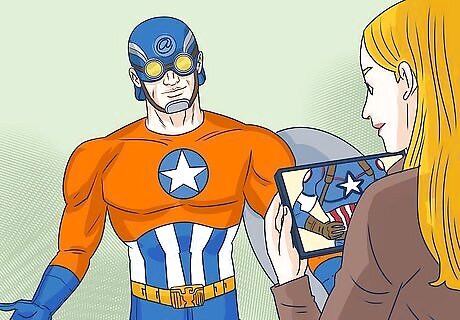
Pay attention to costumes and set design, mimicking the original as much as possible to make it feel like a sequel. It may seem counter-intuitive to ape the movie you're making fun of, but this level of detail will make the jokes far funnier. Great spoofs could, at quick glance, be the very movies they are making fun of. This sucks the audience in. The surprise of your twists and jokes are much funnier because they are juxtaposed against a more "serious" backdrop.
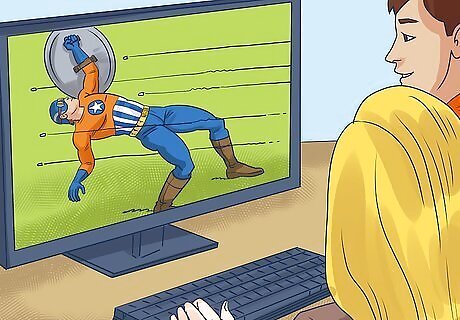
Toss in visual jokes that mimic or mock the original. The TV show Community's now-famous action movie spoof, "Modern Warfare," had more visual jokes than most full-length spoofs. From the general, such as a trickle of green paint sliding ominously down the wall (spoofing blood) to a character's slow-mo dives, flips, and machine gun fire calling up images of The Matrix and Scarface. An attention to visual humor will wring out a lot of laughs. Adjust and play with your props. Making a fantasy-spoof? Try changing the emblems on the shields or coat-of-arms to something ridiculous or funny. Don't be afraid to "steal" famous shots and do something funny with them. "Airplane!" begins with the plane cutting through the clouds set to the music from Jaws, re-creating the shot in a new light.
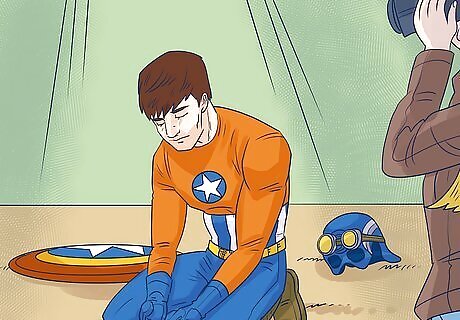
Allow a little seriousness into the film to make the comedy hit harder. This seems counter-intuitive, but remember the old rule of "tragedy + time = comedy." If you put your characters in somewhat legitimate danger, introduce real consequences, and live in the world you're spoofing, then it will be that much funnier when everything blows up in the character's faces. A good spoof still respects and pays attention to the classics, and is a better movie for it. While any movie in this article could fit this step, Sean of the Dead is a particularly good example. It actually owns up the horror elements in a few key scenes, playing like a traditional zombie movie, which leads to an enormously funny and satisfying payoff in the end.

Aim for a quick, high-paced film, especially in comedic moments. Comedy, in general, is a quick-moving art form, as surprise and speed are key to getting laughs and stringing them together. Spoofs are often even faster because they rarely have original plots that the audience needs to think of. Try to keep the jokes rolling quickly -- if one fails, there is another one right behind it -- and let the plot stay simple. Most spoofs are on the shorter end, usually 90-100 minutes, as there is always a danger of the movie overstaying its welcome if it doesn't have anything original to say.













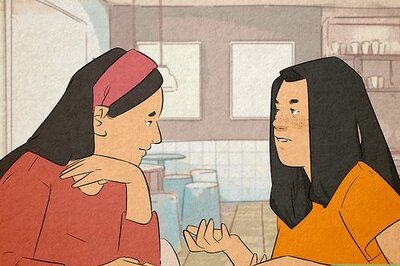






Comments
0 comment